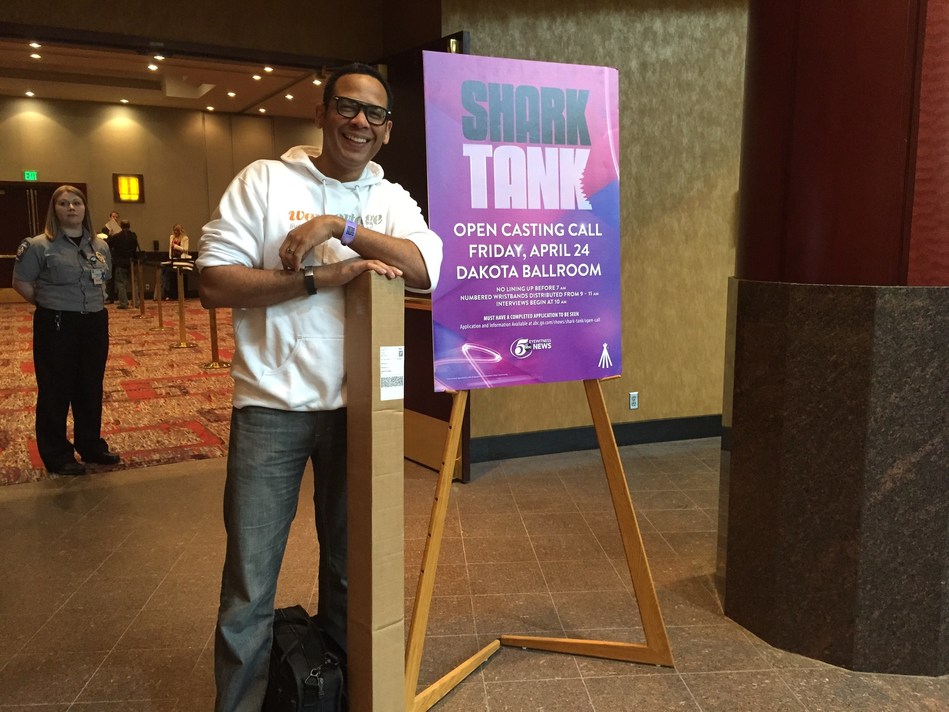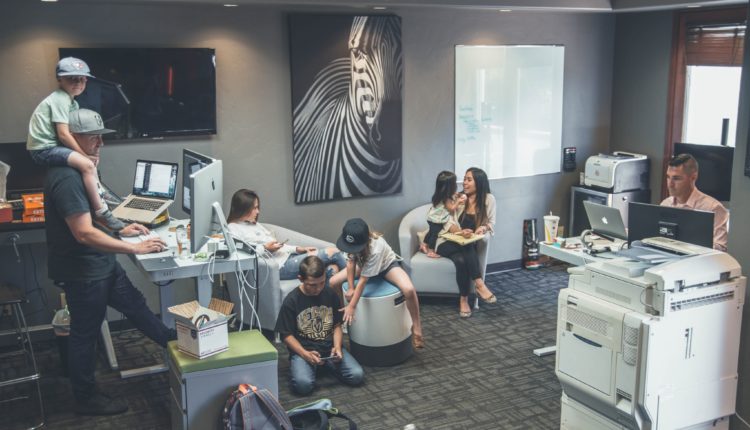The Freelance Informer finds out how parentpreneurs are building support networks not only to survive in business but to keep their cool with their kids when under pressure to retain harmony on the Homefront.
If you are self-employed, a freelancer/contract worker, and a parent or grandparent looking after children, then you are among a very special bunch of people. You are a ‘Parentpreneur’. You could easily put that on your social media status… followed by juggler, short-order cook, night nurse, tutor, social coordinator and driver.
Parents that work for themselves are universally frustrated and frazzled, and looking for ways to gain more hours in the day to juggle it all. Lockdowns and home-schooling have added to their concerns of keeping harmony between their businesses and families. They are craving for support networks and outlets to express their concerns and celebrate their work-life wins with others that ‘get it’.
Is anybody out there?
“Being a parent is challenging, yet rewarding,” says James Oliver, Jr., a US-based parentpreneur and award-winning author. Oliver’s words ring true in many ways. Not only is Oliver the brainchild and founder of the recently launched, ParentPreneur Foundation, set up earlier this year to empower and provide grants to Black parents who are entrepreneurs, he is also a new parent to boy-girl twins, and a black businessman in America.
Oliver was uniquely positioned to start the foundation. Two days before he began a tech accelerator to launch his business, WeMontage, his boy-girl twins were prematurely born and weighed just two pounds each.
He kept focused and connected and received a $50,000 seed grant for the foundation from renowned venture capitalist Brad Feld and gave a total of $10,000 to ten beneficiaries – all parentpreneurs.
Social capital – are you running low?
Building a business and social network requires technical SEO skills, time and patience. But what if the odds are against you? For example, black founders in thriving startup markets, such as the US and the UK, have to work and network twice as hard to get the full benefits of the startup ecosystem and economy. This has been well documented.
“Black people don’t have the same resources as many of our white ParentPreneur counterparts,” says Oliver. “Many of us are first-generation college graduates, and we don’t have a relative we can call to give us money until we can get enough traction with our business. Further, we generally don’t have the social capital to execute our good ideas or even imagine what is possible,” he says.

After completing the accelerator, Oliver raised over $400,000 to successfully launch his removable photo wallpaper business, which has been featured on major US morning shows, such as the TODAY Show, Good Morning America.
“We know 75% of all new businesses fail,” says Oliver. “When you combine having children with starting or running a business, that is a unique pressure that can be extremely hard to deal with. In some cases, the financial pressure can cause great damage to relationships and mental health.”
Oliver has been inspiring ParentPreneurs with his book, The More You Hustle, The Luckier You Get: You CAN Be a Successful ParentPreneur, his blog, and now with the ParentPreneur Foundation.
Takes one to know one
Fellow UK parentpreneur and mother of five, Bridget Daley, agrees that being a parent in business can be tough: “You’ve got one eye on your business, and the other on your family. And we all know which takes priority!”
The Freelance Informer spoke with Daley, founder of Parents in Biz, a digital platform, that helps parents in business with helpful startup tips, providing guidance through interviews with fellow parentpreneurs. To learn about Daley’s story and to try out her tips, click here.
Childcare as global economic driver
If more governments looked at subsidising childcare, as a universal support mechanism and driver towards greater prosperity, more parents and grandparents could be actively working. But often the responsibility of childcare comes down to women, and this has a knock-on effect on their careers and family finances. This is the case not just in the UK and the US, but as far-flung as Australia.
“Women make up more than a third of Australia’s small business owners (35%) and more than 5 million women work in these businesses,” says The Australian Small Business and Family Enterprise Ombudsman Kate Carnell.
Back in June, the ABS labour force data showed women had been hit hardest by the COVID-19 crisis, with the female workforce participation rate falling to 58.4% in April.
“Many of the women who are still working and running their businesses are relying on JobKeeper payments, which will not cover childcare fees if they are reinstated in full. This could force mothers out of their jobs, which is detrimental to working families and even worse for the economy,” says Carnell.
She says now is the time for the government to be considering innovative ways to increase participation rates for women to ensure productivity gains and to benefit businesses.
There are a number of ways for government to do this, she suggests, including making childcare tax-effective or by phasing in an expanded subsidy scheme as recommended by the Grattan Institute, estimated to deliver an $11 billion boost to the economy.
“Economists have often referred to the ‘double dividend’ of childcare increasing workforce participation rates and providing early education…“Ultimately the government has a golden opportunity now to completely re-think the childcare system. Small business and the Australian economy depends on it,” says Carnell.
Parent Podding- homeschooling but different
Parents that have struggled with raising a family, a business and homeschooling during this ongoing pandemic, are looking for support networks to bridge the gap in their children’s social and educational well-being. To learn about a new homeschooling trend that is working to help working parents during times of uncertainty, localised school closures, check out our story on ‘Podding’ here.
Learning never stops
If you have a spare 15 minute you may want to use that time to build your social and financial capital. Check out Arlan Hamilton’s podcast (click here), which offers one of her modules from her 16-hour , Your First Million. Hamilton built a venture capital fund from the ground up, while homeless. She is the Founder and Managing Partner of Backstage Capital, a fund that is dedicated to minimizing funding disparities in tech by investing in high-potential founders who are people of color, women, and/or LGBT.
Started in 2015, Backstage has now raised more than $10m and invested in more than 130 startup companies led by “underestimated” founders.



